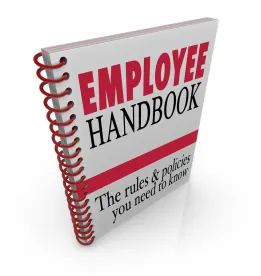Last December, the National Labor Relations Board issued a groundbreaking decision that gave both union and non-union employers more flexibility to protect their interests through employee handbooks and other written policies. This week, the Board’s top prosecutor – General Counsel Peter Robb – expanded on that decision and further clarified when an employers’ written policies will pass scrutiny under the National Labor Relations Act. The General Counsel’s new guidance memorandum also identifies several common types of “facially neutral” policies that likely will remain lawful, despite the uncertainty that prior iterations of the Board had created.
As background, at default, the National Labor Relations Act grants employees the right to act together to attempt to improve working conditions. The Act also prohibits employers from restricting these rights in several ways, including through written policies.
In recent years, the Board had applied a particularly difficult test for employers when the Board was assessing policies that did not expressly restrict protected activities. Specifically, the Board held that these types of “facially neutral” policies would violate the Act – even before the employer actually applied them – if an employee could “reasonably construe” that policy to prohibit protected activities. The Board had invoked this employee-friendly rule to deem several common types of policies unlawful, including policies that required civility in the workplace, restricted the use of electronic devices, and required employees to protect proprietary information.
Last December, however, the Board created a new standard for assessing these types of facially neutral policies. It held that, even if an employee could reasonably construe a facially neutral policy to prohibit protected activities, the policy would pass muster if the employer issued the policy for legitimate reasons and those legitimate reasons outweighed the policy’s impact on employees’ protected rights.
Earlier this week, the General Counsel clarified how the Board will apply this new standard, including for the attorneys, casehandling officials, and other front-line Board officials whom the General Counsel oversees. At the onset, the General Counsel noted that the Board no longer should err toward deeming questionable policies unlawful. Rather, he instructed Board officials to stop interpreting ambiguities against the drafter, and to stop construing general policy language to ban any activity that reasonably could fall within the policy. For example, if an employer’s policy generally bans “disruptive” conduct, the Board should not automatically interpret that policy to ban lawful strikes.
Perhaps most importantly, the General Counsel identified several common types of facially neutral policies that usually will be lawful under this new analysis. Although the Board still shall consider each policy’s specific language, employers should expect to receive more leeway when maintaining facially neutral policies that:
- Require civil conduct in the workplace;
- Prohibit rude or disparaging communications;
- Prohibit photos and video recordings in the workplace;
- Prohibit insubordination or uncooperative behavior;
- Prohibit disruptive or disorderly conduct;
- Protect confidential, proprietary, or sensitive information (except when they specifically prohibit employees from discussing wages, benefits, or working conditions);
- Prohibit defamation or misrepresentation; or
- Control how employees may use employers’ intellectual property, logos, or make statements that an outside person could attribute to the employer.
The General Counsel also described further the types of nuances that the Board will consider when assessing these types of policies, as well as many others.
For the many employers who spent years exercising extreme caution when addressing the above subjects, this is welcome guidance. Private sector employers should strongly consider reassessing their handbooks and other written policies to take advantage of the new flexibility the Board has provided in this area.




 />i
/>i

